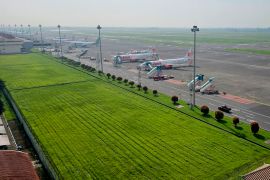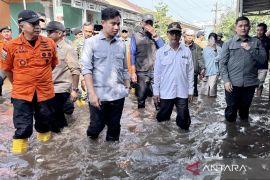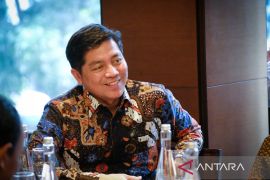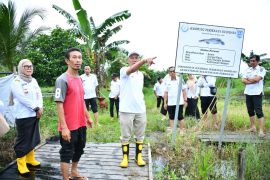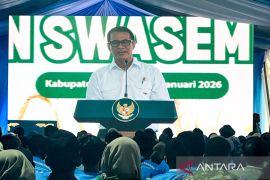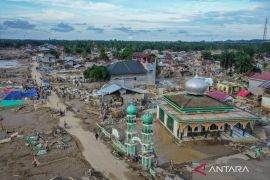Jakarta (ANTARA) - The Ministry of Public Works and Public Housing (PUPR), through the Regional Infrastructure Development Agency (BPIW), supports accelerating actions to end extreme poverty in Indonesia.
“The government should intervene seriously for handling extreme poverty,” Rachman Arief Dienaputra, head of the Regional Infrastructure Development Agency, noted in a written statement received here, Saturday.
Dienaputra assessed that the eradication of extreme poverty requires the convergence of policies from various agencies, so that it can reach the target precisely and efficiently. He emphasized that for convergence to be implemented, it is essential to determine the loci of settlements.
Thus, housing cluster maps and the estimation of infrastructure requirements are urgently needed as a basis for handling extreme poverty through integrated infrastructure.
"Under the directive of the public works and public housing minister, the Ministry of Public Works and Public Housing will integrate housing and settlement programs on an environmental or regional scale," he affirmed.
Related news: Village funds helping reduce poverty, employment rates: BRIN
The agency head explained that the challenges currently faced by the ministry encompass the preparation and processing of data in addition to agreeing on the locus of sub-districts and villages to be prioritized for handling in 2022.
Dienaputra noted that the ministry had obtained the By Name By Address (BNBA) data of stunting and uninhabitable houses from the National Population and Family Planning Agency (BKKBN).
"Also available is data of the BSPS (Self-help Housing Stimulant) program from the Directorate General of Housing and IBM or Community-Based Infrastructure from the Directorate General of Human Settlements that should be integrated," he emphasized.
He remarked that sound collaboration for implementing government programs would enable Low-Income People (MBR) to feel the benefits more quickly, such as by improving the quality of their homes and environment.
He highlighted that as part of its slum-handling endeavors, the PUPR Ministry had collaborated for the City Without Slums or Kotaku Program from the Directorate General of Human Settlements with the Self-help Housing Stimulant (BSPS) Program from the Directorate General of Housing.
The Kotaku program focuses on accelerating the reduction of slum areas, creating jobs, and improving the welfare of the poor in slum areas. Meanwhile, the BSPS program is being implemented in the form of government assistance for MBR to increase self-sufficiency in improving the quality of their homes as well as infrastructure, facilities and public utilities.
Related news: Financial literacy infrastructure key to alleviating poverty: ministry



